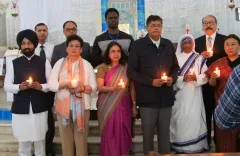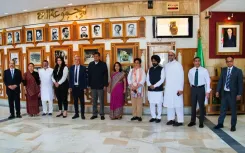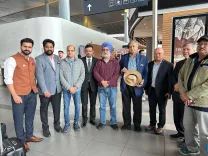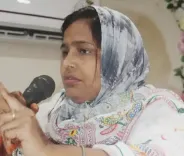Is Scientific Validation of Traditional Medicine Crucial?
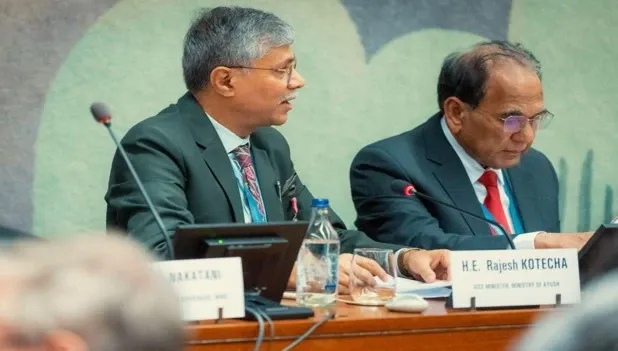
Synopsis
Discover the significant insights shared by Vaidya Rajesh Kotech at the 78th World Health Assembly regarding the crucial need for scientific validation in traditional medicine. This article explores the integration of traditional systems with modern healthcare, marking a pivotal moment for global health.
Key Takeaways
- Scientific validation is critical for the growth of traditional medicine.
- Collaboration between traditional and modern medicine is essential.
- India leads globally in traditional medicine practices.
- WHO's strategy aims to integrate TCIM into health systems.
- New platforms will support investments in the Ayush sector.
New Delhi, May 24 (NationPress) The scientific validation of traditional medicine plays a vital role in its development, asserted Vaidya Rajesh Kotech, Secretary of the Ministry of Ayush.
Kotech made these remarks during a side event at the 78th World Health Assembly (WHA) at the Palais des Nations in Geneva.
He emphasized the pressing necessity for collaboration among basic sciences, conventional medical practices, and traditional healing systems.
The event, organized by the Group of Friends of Traditional Medicine in Geneva, was titled “Traditional Medicine: From Traditional Heritage to Frontier Science, for ‘Health for All.” This gathering celebrated a significant milestone: the 50th anniversary of the World Health Organization's (WHO) inaugural Traditional Medicine Programme.
It also signified the beginning of a new phase in the inclusion of Traditional, Complementary, and Integrative Medicine (TCIM) into established health systems.
“Traditional Medicine should function in harmony with biomedicine to address the evolving global healthcare requirements,” the Secretary remarked in his opening speech.
“The scientific validation of traditional medicine is essential for conserving and sustaining this invaluable heritage,” he further stated.
The session highlighted the draft WHO Traditional Medicine Strategy 2025-2034, which delineates four strategic objectives: creating a robust evidence base for TCIM; regulating products and practices; assimilating TCIM into healthcare systems; and harnessing its broader value for development.
These objectives are underpinned by guiding principles centered on health equity, Indigenous rights, sustainability, and scientific rigor.
India, being the sole nation with a dedicated Ministry for Traditional Medicine, has reaffirmed its position as a global leader and its commitment to the WHA.
“India has established a well-regulated framework for Ayurveda and other recognized traditional systems, encompassing pharmacovigilance, public health delivery, and international pharmacopoeial standards,” Kotech noted.
He also mentioned a new initiative, Ayush Nivesh Sarthi, which will facilitate international investment in the Ayush sector.
The WHO announced plans for the second global traditional medicine Summit, set to take place in New Delhi in December 2025, themed “Restoring Balance: The Science and Practice of Health and Well-being.”





